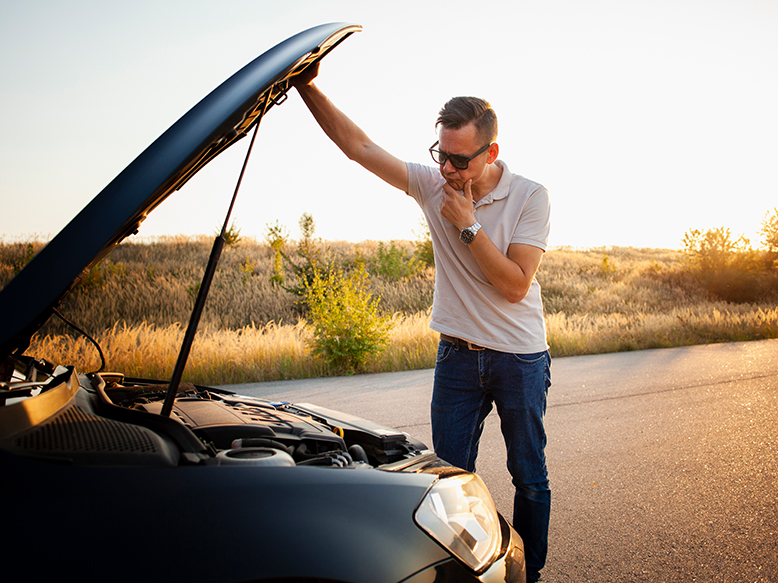A sudden clunk under the hood at 10 p.m. can ruin more than your evening. Shops are locked, friends are asleep, and you are stuck deciding whether to risk driving further or wait till morning. That’s where a roadside assistance plan steps up. Instead of hoping a stranger will stop, one phone tap brings trained crews with the right gear—tow straps rated for half-ton pickups, 12-volt boosters that start a 600 CCA battery, and torque wrenches preset to 100 ft-lb for lug nuts. From urban streets to quiet highways, these plans send help in minutes, so you spend less time worrying and more time getting home. The cost is often less than a single tow, yet the service runs every night, every weekend, and every holiday.
Vehicle Breakdowns Ignore Regular Garage Opening Hours
A survey by the Tire and Rubber Association of Canada shows that 38 % of flats happen after 7 p.m., long after most service bays close. Breakdowns also spike on holiday Fridays when traffic surges and engines overheat in slow queues. Roadside plans fill that timing gap by dispatching technicians from a 24-hour network.
Their trucks carry:
- Onboard diagnostics (OBD-II) readers will pull trouble codes curb-side.
- Low-profile jacks that slide under cars with just 4 inches of clearance.
- Industrial lights that turn midnight repairs into daylight tasks.
Because help arrives where you are, you avoid towing across town after hours, saving both towing charges and storage fees at closed lots.
Roadside Plans Fill The Late-Night Repair Gap
When a belt snaps or a coolant hose bursts, driving another kilometer risks head-gasket damage costing thousands. A roadside plan brings mobile mechanics carrying spare V-belts in common lengths—445, 460, and 485 mm—and hose patch kits rated to 100 psi.
They can perform a temporary fix beside the road:
- Cut the damaged hose,
- Insert a stainless joiner,
- Double-clamp with worm-gear bands,
- Top up with 50/50 premix coolant.
The repair gets you to a daytime garage without needing a tow. Even small fixes matter: tightening a loose battery terminal with a 10 mm wrench restores charging voltage and keeps your alternator healthy.
Towing Coverage Gets You Off Busy Shoulders
Some failures cannot be patched. A seized wheel bearing drags metal on metal; moving further risks axle damage. Most roadside plans include 50 to 150 km of towing per call, enough to reach your preferred shop rather than the nearest lot. Flatbed trucks handle vehicles under 10,000 lb gross weight and use four-point wheel straps tested at 3,300 lb each. Winch cables are made of fiber-core steel to prevent snapback.
By loading on a flatbed:
- Drivetrain components stay untouched,
- Low spoilers remain unscuffed,
- All-wheel-drive systems avoid differential stress.
Removing you swiftly from a narrow shoulder also reduces crash risk from passing traffic.
Battery Boost Services Beat Cold Morning Failures
Ontario winters drain batteries fast: every –18 °C drop cuts cranking power by 40 %. Traditional jumper cables may not deliver enough current, and many modern cars hide the battery under seats. Roadside crews carry high-output lithium boosters delivering 2,000 amps peak. These packs connect to remote underwater terminals, so they never touch delicate seat sensors. Technicians test alternator output with a clamp meter—13.8–14.4 V is healthy—so you know whether you need only a charge or a replacement. If a new battery is needed, some plans offer mobile installation on-site, using OEM-specified AGM cells and resetting the battery management system with a handheld scan tool.
Flat-Tyre Help Without Wrestling Rusted Lug Nuts
A lug nut torqued on by an impact gun can be nearly impossible to remove with the stock tire iron. Roadside trucks carry breaker bars, deep-well impact sockets from 17 to 22 mm, and pneumatic torque wrenches. After lifting the car with a 3-tonne aluminum jack, a technician inspects for sidewall cuts longer than ¼ inch—those cannot be plugged safely. If the spare is useable, it is inflated to the DOT-recommended 60 psi. No spare? The plan tows you or installs a high-speed plug patch that meets CSA standards for punctures under 6 mm. You skip the risky wrestling on a dark shoulder and avoid over-tightening lugs when reinstalling.
Lockout Aid Prevents Costly Window Break Choices
Are keys left on the seat while you refuel? Modern security chips make slim-jamming impossible. Many drivers smash a window rather than wait, paying up to $600 for glass replacement and re-tinting. Roadside technicians use inflatable wedge tools to create a 1-cm gap, then slide a long-reach rod to pull the handle. For push-button ignitions, they carry radio-frequency transponders that power the car long enough to pop the locks. Door seams are protected with non-marring plastic shims, so the paint stays intact. You regain access within minutes and drive away with zero damage.
Trip Interruption Perks Reduce Unexpected Hotel Bills
Breaking down far from home piles expenses quickly.
Many premium plans refund:
- Up to $200 for lodging per night,
- $100 for meals,
- $150 for alternate transport, such as a rental car.
Receipts emailed within 30 days trigger electronic refunds, usually paid to your credit card within a week. Such coverage turns a stressful delay into a manageable detour. GPS-based dispatch also tracks your vehicle’s location to send the closest partner garage when shops reopen, shaving hours off wait times.
Conclusion
Roadside assistance turns late-night troubles into simple service calls. Whether it is a dead battery at –20 °C, a shredded tire at dawn, or a seized bearing on Sunday, support arrives with proper tools, certified technicians, and clear cost limits. Drivers stay safe, trips stay on schedule, and repair shops receive vehicles intact when they open. That is why smart motorists count on Diesel Highway INC. Our around-the-clock crews keep you moving when mechanics are closed, so a small monthly fee protects every kilometer you drive.

